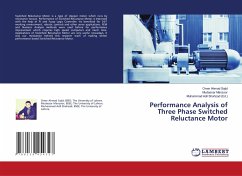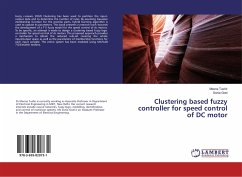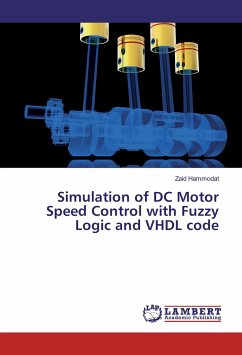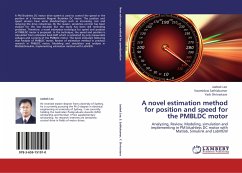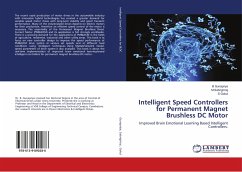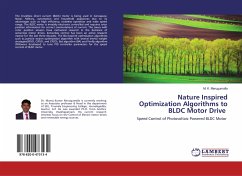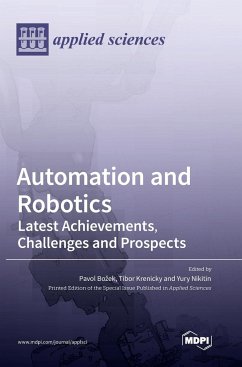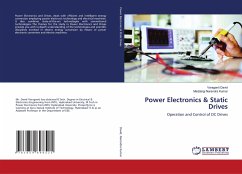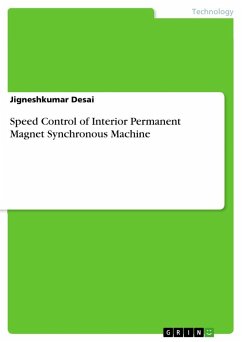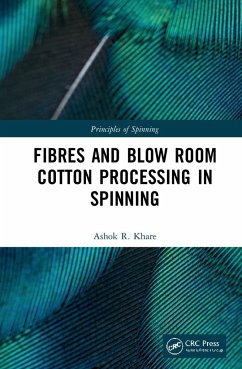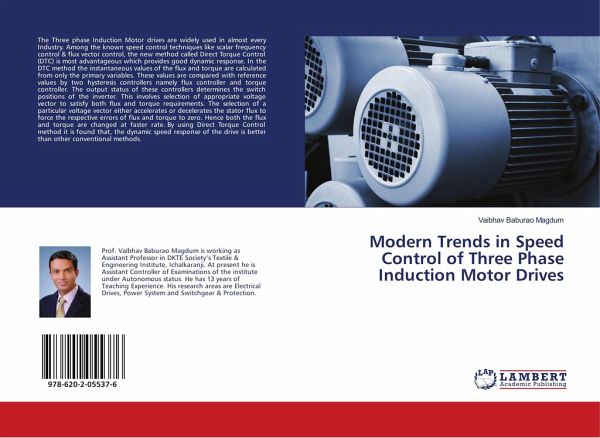
Modern Trends in Speed Control of Three Phase Induction Motor Drives
Versandkostenfrei!
Versandfertig in 1-2 Wochen
24,99 €
inkl. MwSt.

PAYBACK Punkte
12 °P sammeln!
The Three phase Induction Motor drives are widely used in almost every Industry. Among the known speed control techniques like scalar frequency control & flux vector control, the new method called Direct Torque Control (DTC) is most advantageous which provides good dynamic response. In the DTC method the instantaneous values of the flux and torque are calculated from only the primary variables. These values are compared with reference values by two hysteresis controllers namely flux controller and torque controller. The output status of these controllers determines the switch positions of the ...
The Three phase Induction Motor drives are widely used in almost every Industry. Among the known speed control techniques like scalar frequency control & flux vector control, the new method called Direct Torque Control (DTC) is most advantageous which provides good dynamic response. In the DTC method the instantaneous values of the flux and torque are calculated from only the primary variables. These values are compared with reference values by two hysteresis controllers namely flux controller and torque controller. The output status of these controllers determines the switch positions of the inverter. This involves selection of appropriate voltage vector to satisfy both flux and torque requirements. The selection of a particular voltage vector either accelerates or decelerates the stator flux to force the respective errors of flux and torque to zero. Hence both the flux and torque are changed at faster rate. By using Direct Torque Control method it is found that, the dynamic speed response of the drive is better than other conventional methods.



